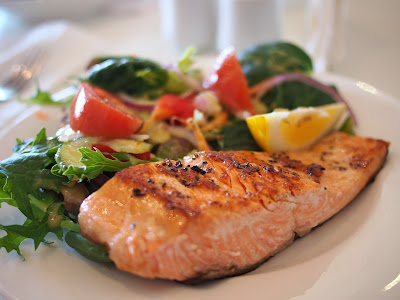Nutrition trends come and go in waves. First, we were
scared of eating too much fat. Then the conversation started to shift, and we
started demonizing carbs.
In a way, our
fear of carbs makes sense. Carbohydrates
make up a large portion of your daily calories, and
eating too much of the not-so-great kind, like sugary drinks, white bread, and
cookies, can be problematic if you’re looking to lose weight or just get
healthier.
So you might choose to cut out
carbs altogether, but that type of restriction isn’t entirely necessary. Eating
the right kind of carbs, like oats and brown rice, provides your body with the
fuel you need to not only get through your workouts, but also your day in
general. That’s why some people opt for a strategy called carb cycling,
meaning they alternate between high carb days and low carb days.
“Carb cycling is a way to help
dieters periodically feel like they’re not dieting and in some cases actually
indulging,“ says nutrition advisor Alan Aragon, M.S.. This doesn't mean you'll
get a special fat-burning effect by going low carb, but it might help you stick
with your diet in the long run, he adds.
But does this approach do
anything for your weight for the long haul? Even more importantly, is it any
better than simply cutting calories overall? Here’s your beginner’s guide to
carb cycling and how to figure out if it’s a fit for you.


























